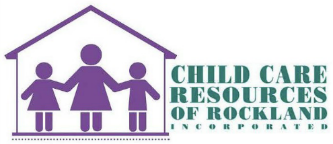Adverse Childhood Experiences (ACEs) are potential traumatic events that occur during childhood. ACEs originated in a study conducted from 1995 to 1997 by the Centers for Disease Control (CDC) and the Kaiser Permanente health organization. This study was one of the largest conducted to investigate three specific forms of adversity faced by children before the age of 18 in their home environment. The three categories included all forms of abuse, neglect, and household challenges (also known as household dysfunctions).
Every two years child care providers must complete 30 hours of training in order to meet the Office of Children and Family Services (OCFS) training requirements in all component areas. Until the recent addition of Adverse Childhood Experiences (ACEs), there were nine.
Dozens of studies have been conducted over the years using the original study. Key findings indicate ACEs are quite common. In fact, two out of three participants reported experiencing at least one ACE, and one in six adults has experienced four or more types of ACEs (CDC). There is a correlation between high ACEs scores and greater chances of poor outcomes later in life. Evidence building has demonstrated that as the number of ACEs increases, the higher the likelihood of increased exponentially a person can experience negative life outcomes. But one important factor to keep in mind is that risk is not destiny. Just because an individual has a high ACEs score does not mean they will experience negative outcomes.
Experiencing many ACEs along with other challenges, such as community violence or racism, without the help of supportive adults, can cause toxic stress and disrupt the development of the brain. The brain is designed to change in response to repetitive experiences - good or bad. Therefore, when a child repeatedly experiences heightened fear or trauma, brain development will change. Manageable levels of stress are normal and promote growth, but a child’s exposure to severe, persistent stress without the support of a nurturing adult can greatly alter the body’s stress management and active the stress response system (toxic stress). With the help of protective factors, or coping skills within safe, nurturing, and stable relationships, the negative consequences of toxic stress can be reduced.
There has been a great deal of research on the subject of ACEs and much information is available. As part of our Professional Development trainings for child care professionals, we will be offering a virtual ACEs 101 training on July 13 and 15.
References:
Center on the Developing Child Harvard University. (n.d.). ACEs and Toxic Stress: Frequently Asked Questions Download PDF. Developing Child Harvard Edu. Retrieved September 6, 2021, from https://developingchild.harvard.edu/resources/aces-and-toxic-stress-frequently-asked-questions/
CDC-Kaiser ACE Study. (n.d.). Center for Disease Control. Retrieved September 6, 2021, from https://www.cdc.gov/violenceprevention/aces/about.html
Vital Signs Adverse Childhood Experiences. (n.d.). Center for Disease Control and Prevention. Retrieved September 6, 2021, from https://www.cdc.gov/vitalsigns/aces/index.html
Wallace, D., Hughes, D. C., Belmonte, C., & Polstein, K. (n.d.). 101- Level of Adverse Childhood Experience Institute. Albany; Early Care and Learning Council, LaSalle School.



